Happy New Year to you all.
I’ve mentioned it before, but I’m never quite sure whether to keep doing these annual round-ups or not. The first one coincided with an extremely productive year, which seemed to be the primary justification for its existence (although looking at it now, it’s an extremely half-hearted retrospective considering the number of games covered) and since then our reviewing capacity has settled to a level that doesn’t perhaps quite merit an end-of-year summary. Plus, we’ve spent quite a lot of time this year looking back at things already.
But, what the hell: here goes.
It was our birthday! (Yes, you’d have thought we’d have mentioned it, wouldn’t you?) And to celebrate, we dug out some of our oldest reviews, played the games in question again, and scrawled out some thoughts while setting them alongside all-new coverage of a related game. [You mean, ‘played one of the sequels’, right? – FFG reader].
To start, Stoo and I both took a look at Sin, which was tied to a review of the first instalment of its cancelled episodic sequel. And I finally got around to playing Grand Theft Auto: Vice City, while developing a slightly better understanding of the 1997 original.
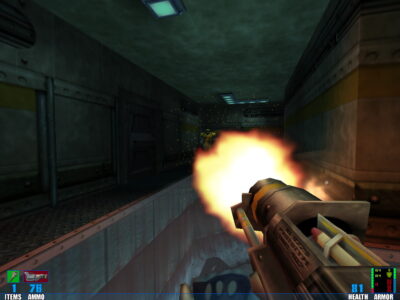
Rocket blasting some foes in The Enlightened Adventures of John R. Blade.
In between, there were racing games new and old. And as a result, we now have the Need for Speed series pretty much covered all the way up to 2011. It’s a genre I continue to enjoy, although your standard track-based caper of the late 00s certainly requires a greater investment of time than might be ideal, to apparently no greater end than filling the middle of the game with #content that ultimately becomes rather hard to digest.
Anyway, the anniversary stuff isn’t quite over yet: there’s at least one and possibly two more pairs of reviews and retrospectives to come. (We decided to buy ourselves a bit of time by declaring the Sin discussion the start of our celebrations: hence, any further articles published before April 2022 are definitely still on time and relevant and not delayed at all).
In terms of other reviews from 2021, I guess a personal highlight was being able to finally get my teeth into the full Mass Effect trilogy. Like everyone has been saying for the past 10 years or so: it’s great! Although I was aided in this endeavour by the knowledge that I would have a chunk of time available to devote to three epic space RPGs, for once I actually used that time as intended rather than being distracted by four or five football games from the 90s.
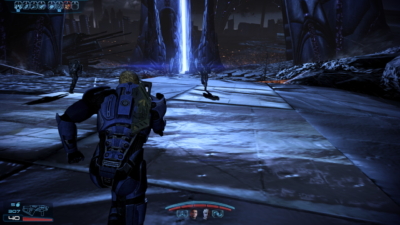
Peroxide Man-Shep makes a run for it.
With Mass Effect, the Lost tie-in, Beijing 2008 and Burnout: Paradise joining the late-00s iterations of TOCA and Need for Speed, it’s been a slightly Xbox 360-era year, I guess. Call the retro police! Fortunately Stoo was on hand to review the Apogee platformer, Realms of Chaos.
And I belatedly caught up with, and enjoyed, Origin’s 90s blaster Crusader: No Remorse. Which I had to re-buy on GOG, seeing as I apparently got rid of my old CD copy some time ago (but bizarrely kept that of the sequel, No Regret).
Poking around in dim and dusty memories of games bought and sold is the theme of Inside The Big Cardboard Box, a series which continued throughout 2021 (and will hopefully conclude shortly). If you’ve missed it, and like the sound of a 40-year-old man reminiscing about various UK budget ranges and compilations while trying to remember what he did with some CDs he can’t find, then you’re in for a treat.
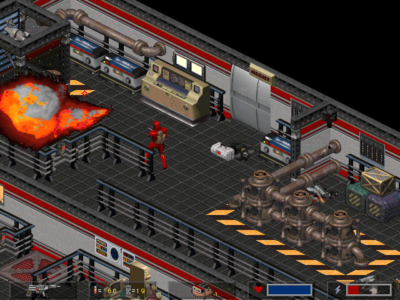
Causing havoc with the red tin man in Crusader: No Remorse.
And Jo and I continued our spoiler-tastic indie discussions, ticking off most of the major modern so-called ‘walking sims’ and deciding that putting the ones we’d covered into some kind of ranked order would be a worthwhile endeavour.
We’re planning to keep going with that series in 2022. While I joke about being a retro heretic, most of my gaming time is (by choice) focused on older games that fall within the usual scope of this site, and I figure that there’s a difference between not being able to keep up with modern gaming and deliberately shunning it. The short narrative adventures we’ve played thus far tick a lot of my boxes anyway, and have allowed me to at least feel partly in touch with what’s been going on in the relatively recent past. And I enjoy the discussions, too.
As for what else this year holds: who knows? I do make plans: CD wallets have been flipped through, boxes freed of their cellophane, digital libraries scanned, and solutions for awkward Windows 98 games considered and re-considered. For me, things don’t really get done without a plan. But, all the obstacles that life throws in the way notwithstanding, plans can also change, and there’s something to be said for being suddenly inspired to dive into a game you’d not thought about for a while rather than grinding through a list in a proscribed order.
So, I can end only by saying that we hope to bring you roughly the same amount of the kind of thing that we usually do in the year ahead, while offering you our thanks – as always – for giving us your time and attention, and wishing you all the best for 2022.


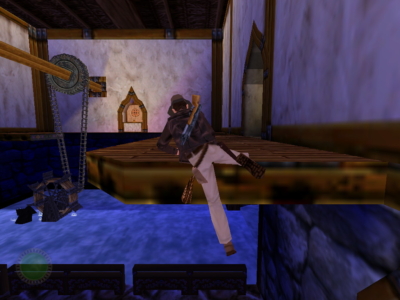
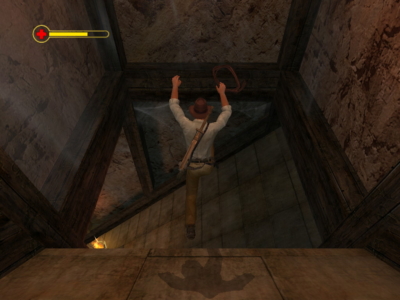
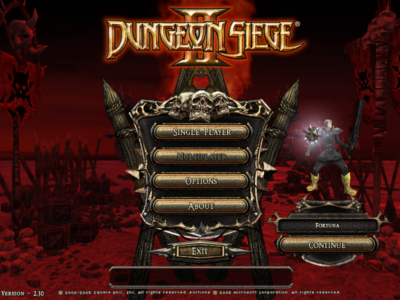

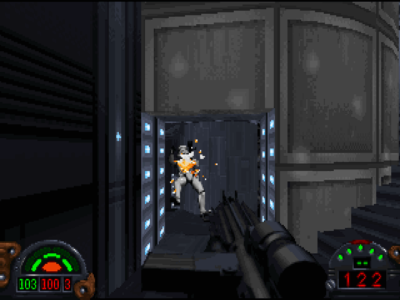
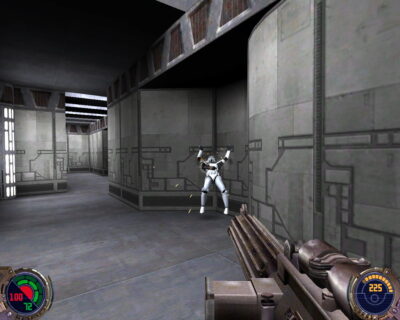





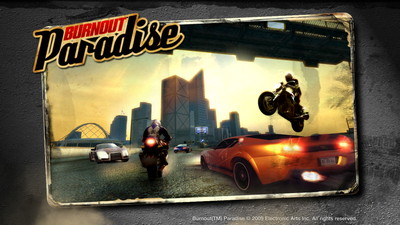

 Posts
Posts